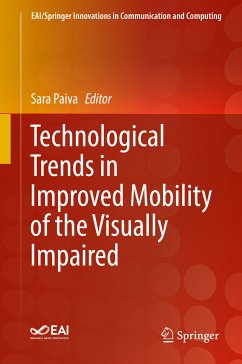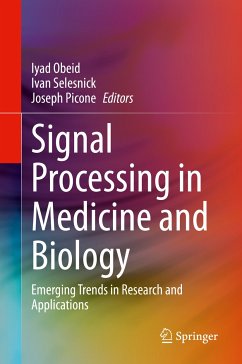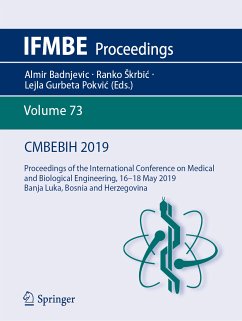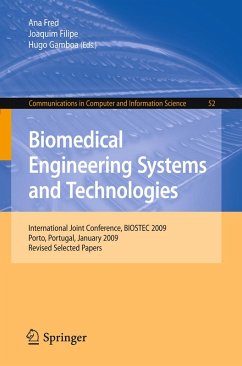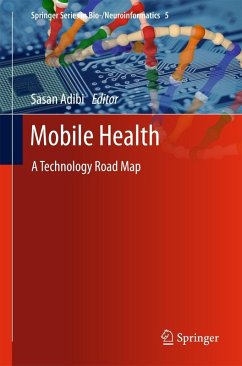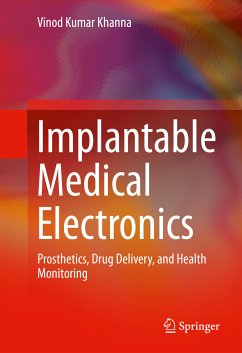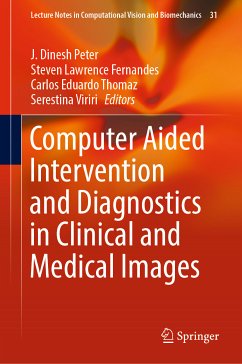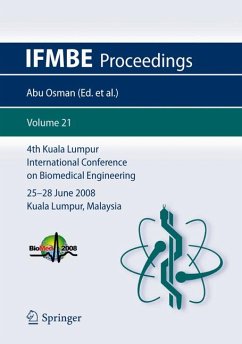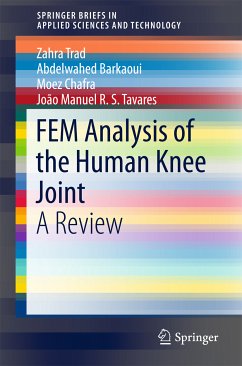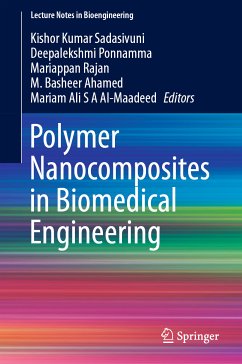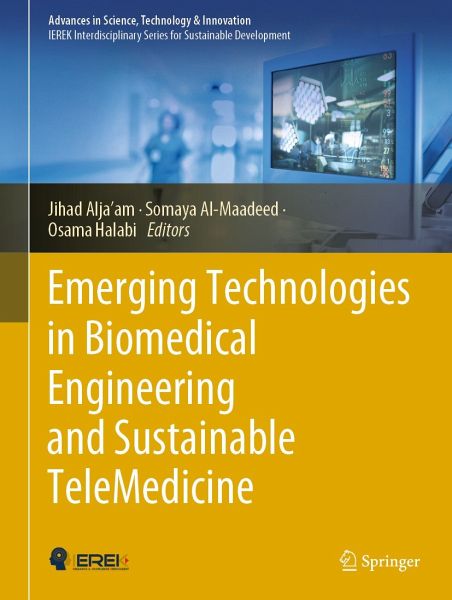
Emerging Technologies in Biomedical Engineering and Sustainable TeleMedicine (eBook, PDF)
Versandkostenfrei!
Sofort per Download lieferbar
104,95 €
inkl. MwSt.
Weitere Ausgaben:

PAYBACK Punkte
52 °P sammeln!
This book presents the most recent research and applications in Biomedical Engineering, electronic health and TeleMedicine. Top-scholars and research leaders in the field contributed to the book. It covers a broad range of applications including smart platforms like DietHub which connects patients with doctors online. The book highlights the advantages of Telemedicine to improve the healthcare services and how it can contribute to the homogenization of medicine without any geographical barriers. Telemedicine transforms local hospitals, with limited services, into a node of an integrated networ...
This book presents the most recent research and applications in Biomedical Engineering, electronic health and TeleMedicine. Top-scholars and research leaders in the field contributed to the book. It covers a broad range of applications including smart platforms like DietHub which connects patients with doctors online. The book highlights the advantages of Telemedicine to improve the healthcare services and how it can contribute to the homogenization of medicine without any geographical barriers. Telemedicine transforms local hospitals, with limited services, into a node of an integrated network. In this manner, these nodes start to play an important role in preventive medicine and in high-level management of chronic diseases.
The authors also discuss the challenges related to "health informatics" and in "e-health management". The topics of the book include: synchronous and asynchronous telemedicine with deep discussions on e-health applications, virtual medicalassistance, real-time virtual visits, digital telepathology, home health monitoring, and medication adherence, wearable sensors, tele-monitoring hubs and sensors, Internet of Things, augmented and virtual reality as well as e-learning technologies. The scope of the book is quite unique particularly in terms of the application domains that it targets. It is a unique hub for the dissemination of state of the art research in the telemedicine field and healthcare ecosystems. The book is a reference for graduate students, doctors, and researchers to discover the most recent findings, and hence, it achieves breakthroughs and pushes the boundaries in the related fields.
Dieser Download kann aus rechtlichen Gründen nur mit Rechnungsadresse in A, B, BG, CY, CZ, D, DK, EW, E, FIN, F, GR, HR, H, IRL, I, LT, L, LR, M, NL, PL, P, R, S, SLO, SK ausgeliefert werden.



